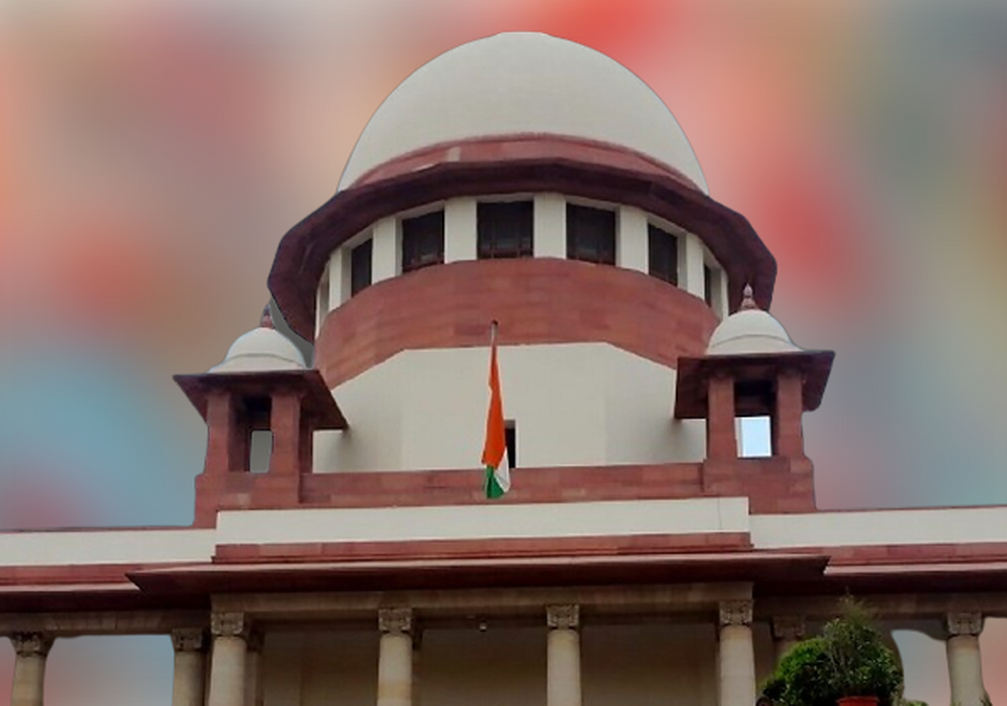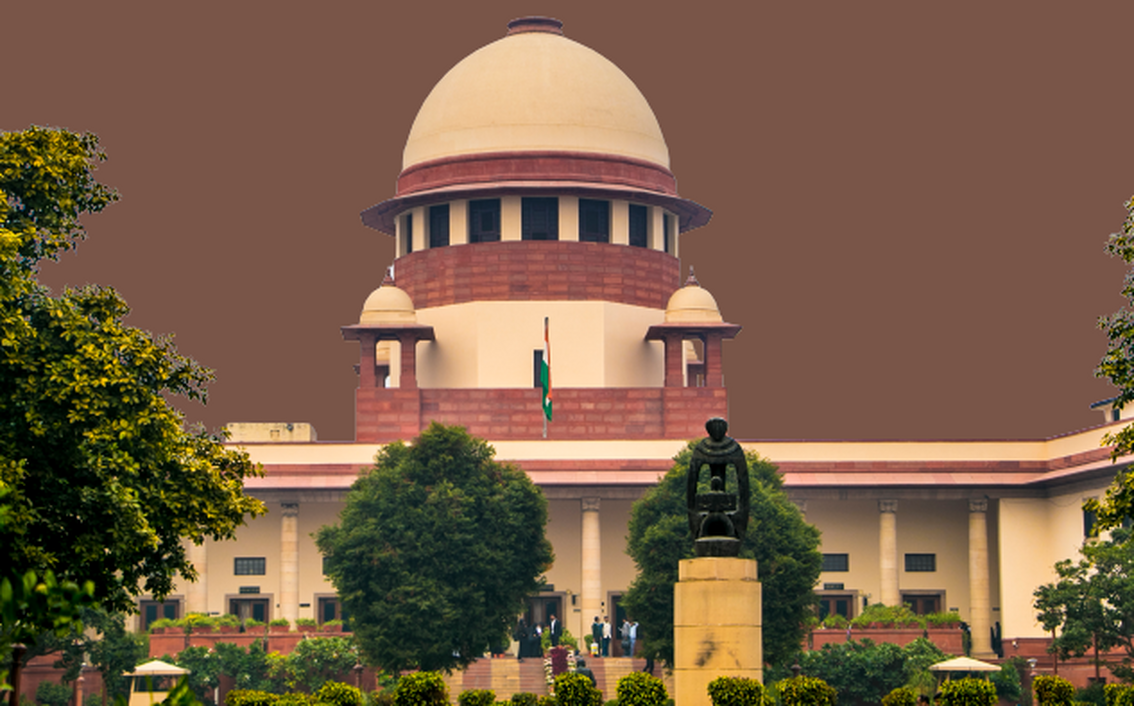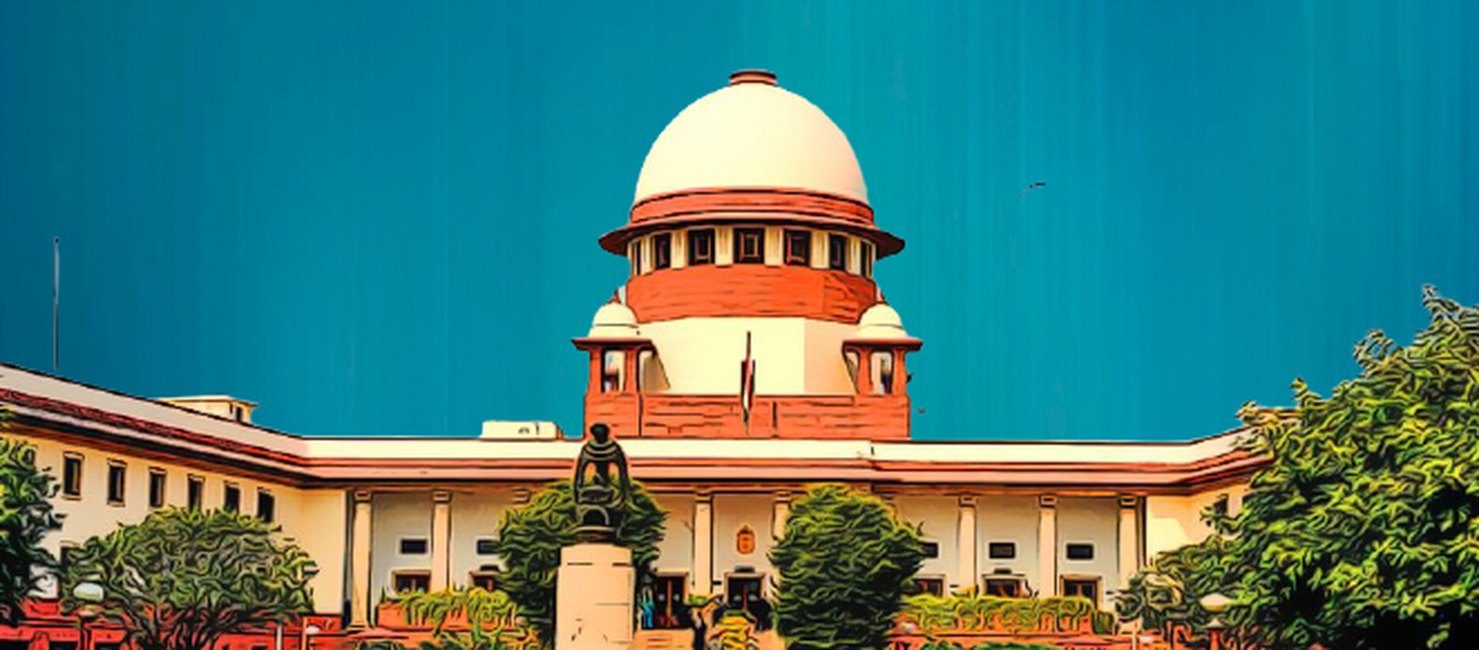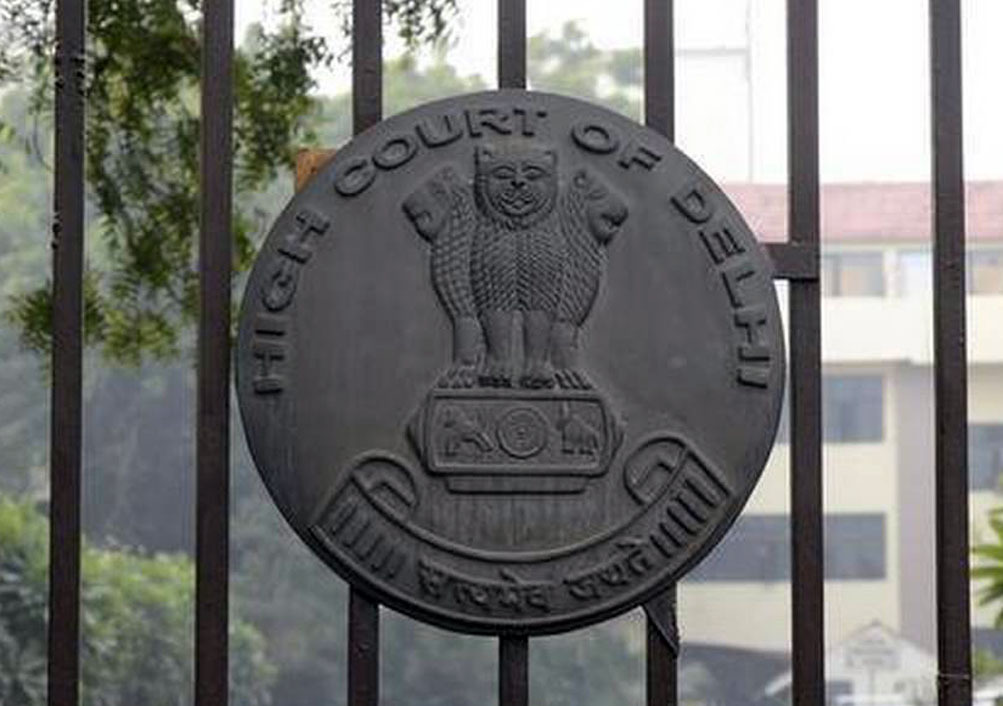Bhopal Municipal Corporation bound as allottee of State to utilise land, ought to have taken steps for removal of illegal possession of plaintiff: Top Court confirms order setting aside award mandating plaintiff to pay Rs 30 lakh to BMC
Justices Vikram Nath & K. V. Viswanathan [18-04-2024]

Read Order: THE STATE OF MADHYA PRADESH v. SATISH JAIN (DEAD) BY LRS & ORS [SC- CIVIL APPEAL NO. 6884 OF 2012]
LE Correspondent
New Delhi, April 19, 2024: While invalidating an agreement whereby it was agreed upon by the parties that the plaintiff would vacate the suit land, allowing the Bhopal Municipal Corporation (BMC) to construct the bus stand and in lieu, separate plots would be allotted to the plaintiff, the Supreme Court has observed that the BMC ought to have taken appropriate steps for removal of the “totally unauthorised and illegal” possession by the plaintiff.
The facts of the case were that Satish Jain s/o Dayanand Jain instituted a civil suit impleading one Rama s/o Parasram as defendant No.1 and State of Madhya Pradesh through Collector, Bhopal as defendant No.2 praying for a decree of declaration, permanent injunction and mandatory injunction. The basis of the claim was that the property in dispute was owned by the State of Madhya Pradesh. However, defendant No.1 was enjoying continuous and peaceful adverse possession over the suit land for the last 50-60 years and as such has perfected his rights by adverse possession and had become the owner of the land.
The plaintiff was compelled to institute the suit for declaration, permanent injunction and mandatory injunction when it came to light that defendant No.1 was likely to transfer the said land again in favour of the 3rd party and he also came to know that some officers and employees of the State (defendant No.2) had visited the suit land and tried to remove the fencing. The Trial Court decreed the suit ex-parte. The State preferred an appeal under Section 96 of the Code of Civil Procedure, 1908 (CPC) which was dismissed on the ground of delay of 8 days only by the IVth Additional District Judge, Bhopal.
The State preferred a civil revision before the High Court which was allowed. It also condoned the delay of 8 days after allowing the application for condonation of delay, and further directed the Appellate Court to hear the parties on merits and decide the appeal in accordance with law. The said appeal was allowed and the case was remanded to the Trial Court for deciding the same on merits
In the meantime, it appears that the suit land was allotted to the Bhopal Municipal Corporation (BMC) for constructing a bus stand. It was also alleged that some allotments were made by BMC in favour of the plaintiff but they were later on cancelled. There was an agreement dated 30.07.1991 entered between BMC and the plaintiff that the plaintiff would vacate the suit land, allowing the BMC to construct the bus stand, and in lieu, separate plots would be allotted to the plaintiff.
Further, BMC was impleaded as defendant No.3. BMC filed an application under Section 89 of the CPC stating that under the agreement, the plaintiff be directed to pay Rs 30 lakh against the value of the allotted land. It was further stated that in case the full amount is deposited, BMC is ready to fulfil its obligations. It therefore prayed that the parties may be relegated to a Mediator/Arbitrator for settlement of the dispute under Section 89 CPC.
The Trial Court referred the matter to the arbitrator and it was held that the plaintiff would pay Rs 30 lakh to BMC and such lease rent as maybe determined, and in turn the BMC would fulfil its obligation of allotment of land. The Appellant-State of Madhya Pradesh filed objections. The Trial Court allowed the same. Aggrieved by such judgment, the plaintiff preferred a civil revision, which had since been allowed by the impugned order, giving rise to the present appeal before the Top Court.
The Division Bench of Justice Vikram Nath & Justice K. V. Viswanathan noted the admitted position that the suit is still pending before the Trial Court. The plaintiff had not been granted any declaration as such till date. The ex-parte decree having been set aside, there was no occasion for the plaintiff to further act upon the agreement since no rights had crystallized to the parties.
The basis of that agreement was the ex-parte decree of declaration and injunction in favour of the plaintiff. “Once the ex- parte decree has itself been set aside and the suit was to proceed further from the stage of filing of written statement by the Appellant- State, the agreement dated 30.07.1991 would lose all its credibility assuming there was any semblance of any right to enter into the agreement. The application filed by BMC under Section 89 CPC was also not maintainable based on the agreement of 30.07.1991. There appears to be some kind of collusion between BMC and the plaintiff”, the Bench held.
Whether or not there was any condition in the agreement dated 30.07.1991 for appointment of Arbitrator, the very basis of entering into the agreement having been set aside, the agreement itself could not have been relied upon by any of the parties, it added.
Noting that the suit land was owned by the Appellant-State, the Bench opined that even if the State had allotted it to BMC for constructing a bus stand, BMC could not have dealt with it and treated it to be in the ownership or possession of the plaintiff by entering into the agreement dated 30.07.1991. BMC would be bound as an allottee of the State to utilise the said land for the purpose for which it was given. As per the Bench, BMC ought to have taken appropriate steps for removal of possession of the plaintiff which under law was totally unauthorised and illegal.
The agreement in question clearly mentioned that the plaintiff was claiming right under the ex-parte decree and the dismissal of the First appeal. Later on when both the orders had been set aside and the suit itself was to proceed from the stage of the Appellant-State filing its written statement, the agreement itself would not have any sanctity in the eye of law even inter se parties. The right created in the plaintiff under the ex-parte decree stood extinguished and, therefore, BMC ought to have been careful enough of not placing any reliance any further on the said agreement, the Bench noted.
“The Trial Court was justified in allowing the application by setting aside the award. The High Court committed a grave error in not considering the relevant aspects and in placing reliance on the statement made by the Appellant- State before the Trial Court that the State had no interest inasmuch as it had allotted the land to BMC to set up a bus stand and therefore, it should be deleted from the array of parties as defendant no.2”, it held.
Therefore, allowing the appeal, the Bench held that the Trial Court will proceed with the suit and decide the same on merits on the basis of evidence which may be led before it.
Sign up for our weekly newsletter to stay up to date on our product, events featured blog, special offer and all of the exciting things that take place here at Legitquest.




Add a Comment